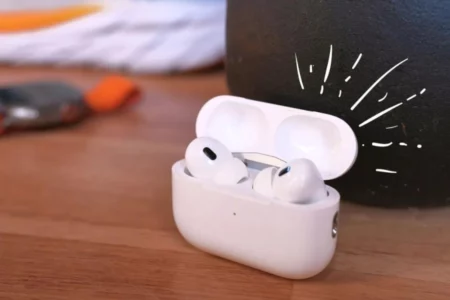After using something for a while, everything eventually becomes dirty, and guitars are no different. You need to take good care of your guitar strings because they are essential to music production. Like most guitar players, you undoubtedly spend much money on premium guitar strings, but alas, the crisp bell tones produced by brand-new strings only last for a short time.
The process of cleaning your guitar is not difficult. You should know how to care for it and what is appropriate. Avoid having to go to the store in search of a substitute. This article will explain how to clean guitar strings, why you should clean them occasionally, and all the other pertinent information.
You gain many advantages by cleaning guitar strings frequently. If you want to continue using them for a long time, you must. The delicate strings become dirty, and if your guitar strings are not clean, you can’t use them comfortably.
Why Should You Clean Your Guitar Strings?
Before I go on to the cleaning part, you first need to know why you must clean your guitar. I already established that guitar strings get dirty—a brand-new guitar string sparkles in contrast to one played repeatedly over time. When you combine these two, you’ll see how the strings of the grungy guitar have accumulated dirt or grime.
You should frequently clean your guitar strings for the following reasons:
- You use your hands on the instrument when playing, maintaining appropriate cleanliness. It’s not good for your health to touch a filthy thread.
- In addition to affecting your health, unclean guitar strings will provide a poor tone. It will alter the vibrating pattern and tone of the strings.
- Cleaning makes removing the gunk that has adhered to the strings easier. You’ll see that the strings are spewing out much dirt.
- If you want to use the strings on your guitar for a long time, you should clean them frequently. There will be much grime on the strings when you first clean them, but if you maintain washing them often, the dirt won’t be able to accumulate. To lessen the amount of debris attached to the strings, keeping your hands clean before handling them is also essential.
Never use WD40 to clean guitar strings. WD-40 can have problems when it comes into contact with wood, although it was made to be used on metal and should function just fine on guitar strings.
Coconut oil, olive oil, lemon oil, or vinegar did not permit to use on any part of your guitar, including the strings and fretboard. Due to oil’s acidic nature, all these products have the potential to harm the wood of your guitar irreparably.
Before stringing fresh guitar strings on your instrument, boiling them will aid in the stretching process and improve tone and tension. Your old strings could sound sharper, crispier, and springier after being boiled.
The key to long-lasting guitar strings is to practice proper maintenance habits. You must make it a habit to clean your guitar strings after each practice session. Regularly cleaning your guitar’s strings will prevent instrument deterioration. Anytime you wish to play the guitar, it would feel comfortable in your hands. Additionally, the strings will make greater touch with the feet when the dirt remove from them.
4 Best Way to Clean Guitar Strings at Home
Your guitar strings can clean in a variety of ways. You can clean them with only a few specific products or utilize cleaning solutions to achieve the required effects. It’s a good idea to always keep a towel or cloth on hand for cleaning your guitar. It prevents lint from getting into the guitar strings’ grooves. You must pick the appropriate approach to avoid issues with your guitar strings. Let’s explore methods of how to clean guitar strings at home:

How To Clean Acoustic Guitar Strings?
Since many acoustic guitars lack electronics or have them in a small space, they can be slightly simpler to play than electric guitars. Because the woods on an acoustic guitar are more exposed, you should take extra care to use a barely damp microfiber cloth to prevent moisture from penetrating the wood and staining the finish. The general guidelines for wiping in a circular motion and being aware of any present gadgets are the same.
How To Clean Guitar Strings with Alcohol?
Strings can be cleaned with isopropyl alcohol or rubbing alcohol. It will clean them out thoroughly by getting rid of filth. The drawback is that you can hear the result in your fret buzz. The noise continues for some time. It’s not at all enjoyable. The justification for abstaining from alcohol is the harm it can cause your neck by drying out the wood.
If rubbing alcohol gets in contact with the fingerboard, it will dehydrate the wood because it is a powerful and aggressive cleaning agent. Some of it will inevitably get to the wood as you press the strings down if you rub it on your strings.
There are ways to prevent these issues, such as conditioning the fretboard with lemon oil, but those methods require additional effort. It negates the entire purpose, especially when several affordable options are made specifically for the job.
How To Clean Guitar Fretboard with Cloth?
One of the best methods for cleaning your guitar strings is with a cloth. It is a great option for routine cleaning if you don’t want your hands to come into direct contact with the dirt. Although the string’s surface will be clean using this technique, the back of the guitar strings will not touch.

You should not neglect to clean the dirt and oil that are typically present behind the strings. You must gently wrap the cloth over each thread if you want to use it. The first string is where you should begin—working the fabric gradually up and down the guitar string’s length.
The cloth needs to feel like it is securely grasping the string, so you must apply pressure to make it happen. If your grip isn’t firm enough, you won’t be able to remove the filth accumulation.
You proceed to the next string after finishing the first string. The cloth is likewise wrapped around the string and slid up. Keep in mind not to work too quickly. You’ll wind up injuring your fingertips instead of getting the dirt out. Until the last string, you will perform this cleaning procedure for every string. You must remove every trace of dirt; otherwise, you will have to go back and clean each thread individually.
How To Clean Guitar Strings with Vinegar?
When using the cloth to clean, you don’t need to use any additional products. On your strings, you shouldn’t use vinegar or any type of home oil. Simple cleaning with a rag will do the trick. Instead, you can buy the proper lubricants made specifically for guitars.
Can You Clean Guitar Strings with Water?
Water is completely OK if it doesn’t touch any wood. Windex has a ton of chemicals, which will cause the paint to decay in addition to absorbing wood. We use the same water to wash ourselves every day and to drink. Water could be a superb substitute for most cleaning agents you might use, yet it risks damaging your instrument.
Simply use water if you’re unsure. You won’t need any protective gear because plain water is free, widely available, and devoid of harsh chemicals, health threats, and fire hazards. But I’m not referring to doing anything extreme, like spraying your entire guitar with water. And if that’s the case and your guitar is damaged, you ought to use another instrument.
However, this approach is always the best if your fretboard is only lightly soiled and needs a quick clean-up. Simply take a cotton ball or microfiber cloth, add a little water, and carefully and slowly clean each fret on your guitar.
How Do You Lubricate Guitar Strings?
Apply the lubricant directly to the guitar strings, then quickly wipe away any excess with a clean towel. It is entirely up to you whether you lubricate your guitar strings. While some guitarists believe it shortens the life and improves the feel of the strings, others believe it makes the strings sticky.
Use a product manufactured exclusively for guitar strings, like Fast Fret, and stay away from anything that wasn’t made for guitars if you want to use oil on your guitar strings.
How To Sanitize a Guitar?
How to disinfect a guitar? Since your hands constantly contact the fretboard (also known as the fingerboard) and accumulate dirt, dust, grease, sweat, and whatever else remains on your fingers, this area will need the greatest care.
It is preferable to take your strings off or at least loosen them so you can completely clear the fretboard. Wipe each fret in a parallel motion to the unrest with a lightly soaked microfiber cloth. Since dirt and grime tend to build the most, pay extra attention to that area when cleaning the fuss itself. If you are speaking about caustic substances, some solutions can dry out unfinished fretboards if applied incorrectly.





